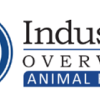Recent Posts
- Building a Robust and Diverse Ecosystem Innovation Ecosystem in the Animal Health Industry
- Cultivating A Champion Culture: Balancing Performance and People in Animal Health
- How Stable are Earnings in Animal Health? Results of the Animal Health Jobs 2025 Salary Survey
- Entry Fees for the Race for Talent: Results of the Animal Health Jobs 2025 Salary Survey
- Looking In The Gift Horse’s Mouth: The Pros and Cons of Counteroffers in Animal Health
Most Popular
-

How Stable are Earnings in Animal Health? Results of the Animal Health Jobs 2025 Salary Survey
-

How Will Artificial Intelligence Change Jobs In Animal Health?
-

News to Know from Brakke Consulting’s 2025 Animal Health Industry Overview
-

Building a Robust and Diverse Ecosystem Innovation Ecosystem in the Animal Health Industry
-

Entry Fees for the Race for Talent: Results of the Animal Health Jobs 2025 Salary Survey
Improving Employee Engagement: Stop Mucking Around at Work

The animal health industry is all about the furry, feathered and scaly creatures who share our planet. While most animal health insiders feel a deep emotional connection with the industry, others struggle to find meaning in their daily tasks. What makes them feel this way, and how can managers help?
Animals are our purpose
In our spring 2023 Attitudinal Survey, 64% of respondents listed a meaningful job as the most important reason to stay in their current role. They see purpose in their work and the company’s goals. Perhaps that’s not surprising: after all, our business is keeping pets at home, livestock on the farm, and animals in the wild healthy and happy.
Whether out in the field in sales, customer relations or professional services, or supporting the field force’s efforts through marketing, pharmacovigilance, production, R&D or regulatory affairs, many animal health employees work directly with animals or their people every day. Colleagues in these jobs spend much of their time thinking about animal health and well-being. Staying engaged is likely to be easier in a job that focuses on the animals every day.
Another group of employees doesn’t see customers or animals regularly. It’s easy for people working in finance or IT to go weeks or months without ever talking to a customer or talking about animals. Supply chain managers can easily forget that they are moving medicines, not widgets. They have no regular reminders of how their work fits into the bigger picture. No wonder if some become disillusioned and disengaged.
Does alienation exist in animal health?
Animal health companies use mission and purpose statements to try to keep employees motivated. Whether it’s Vetoquinol’s vision or the Zoetis purpose, these touchpoints remind employees that animals are the reason that the business exists. But another large part of the reason a person finds (or does not find) their job meaningful occurs much closer to their desk.
What makes work meaningless?
What makes work meaningless? One theory blames “pseudo-work,” the self-made tasks that lack any value but that employees must nonetheless complete.1 Another chalks it up to changes in the economy that promote jobs with no direct benefit to society.2 But the theory that resonates most with the team at Animal Health Jobs attributes much of the problem to a sense of alienation at work, which has three root causes:
- Lack of autonomy
- Repetitive work
- Poor managerial practices 3
According to this theory, each of these factors contributes to employees’ feeling that what they do at work every day doesn’t serve society, or in our case, serve animals or their people.
How managers can prevent employee alienation
Managers at all levels can influence or control all three of these alienating factors. Simple actions can improve engagement in every employee, whether they see animals regularly or not.
Autonomy
Give employees as much autonomy as possible in their roles. Let them control the timing of their workdays, the order in which work is done, where they work and the way they complete tasks. Focus on setting the right priorities and completing meaningful tasks while complying with company rules and legal requirements. Don’t count hours worked or insist on rigid clocking hours unless they are truly essential.
Write, present, repeat? Not anymore!
Reduce repetitive work. We can all think of examples of useless repetition, from writing multiple decks that provide the same information to issuing monthly reports that no one reads. While some dull tasks can’t be eliminated completely, anything that can be done to reduce the number of pointless tasks will go a long way to help employees feel that they are more than just another mule in harness.
Raise your managerial standards
Raise your company standards for leadership behaviors. Consistency, fairness, and transparency all make employees feel seen and valued. Micromanagement, favoritism and withholding key information will quickly demotivate them. Set clear expectations and hold managers at all levels accountable for the way they treat their team members.
Mingle with the herd
Every employee deserves the chance to meet customers and their animals. Send a business analyst or production planner out to a farm with a sales representative. Bring veterinary customers to IT team meetings to talk about how they use tech in practice. As much as possible, bring the customer into the company and the company into the community.
These are all simple, inexpensive and effective ways to help employees reconnect with the meaning behind their jobs. They remind us all of the reason we’re in the animal health industry: to make the world a better place for animals and their people.
---
Looking for your next deeply engaged employee? The candidates in the Animal Health Jobs database are all experienced insiders who love the industry and know how to make a difference from day one. Register your job posting and join the top animal health and animal nutrition companies in finding the best candidates in the field.
Register for our newsletter to stay on top of the latest trends in animal health and animal nutrition.
References
- Normark, D and Fogh Jense, A. (2018) Pseudowork – how we ended up being busy, doing nothing. Gyldendalske Boghandel, Nordisk Forlag A/S.
- Graebner, D (2018) Bullshit Jobs - A Theory. Simon and Schuster.
- Walo, Simon. "‘Bullshit’ After All? Why People Consider Their Jobs Socially Useless." Work, Employment and Society(2023): 09500170231175771.


Comments